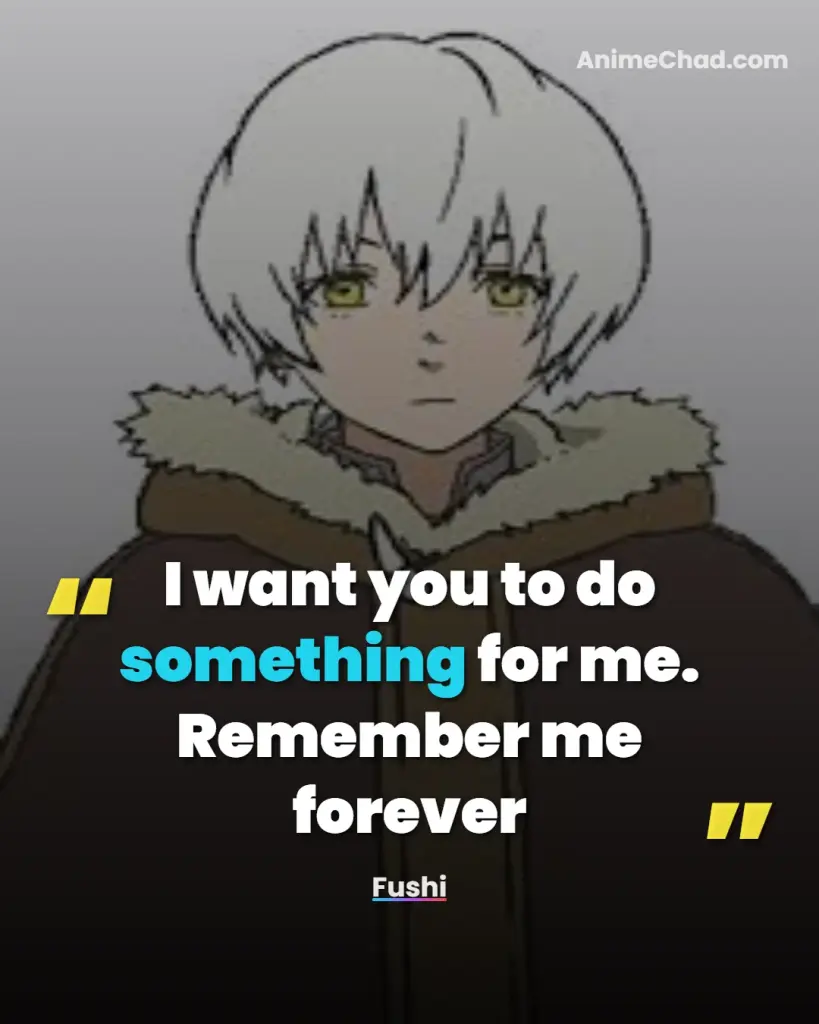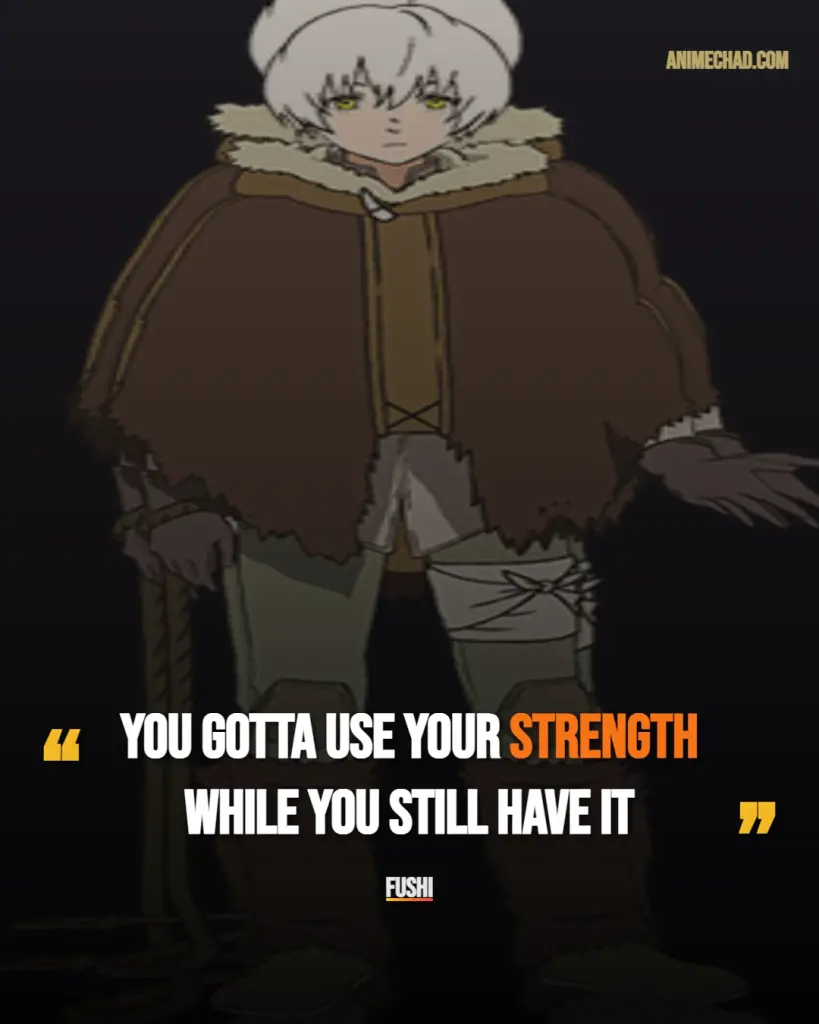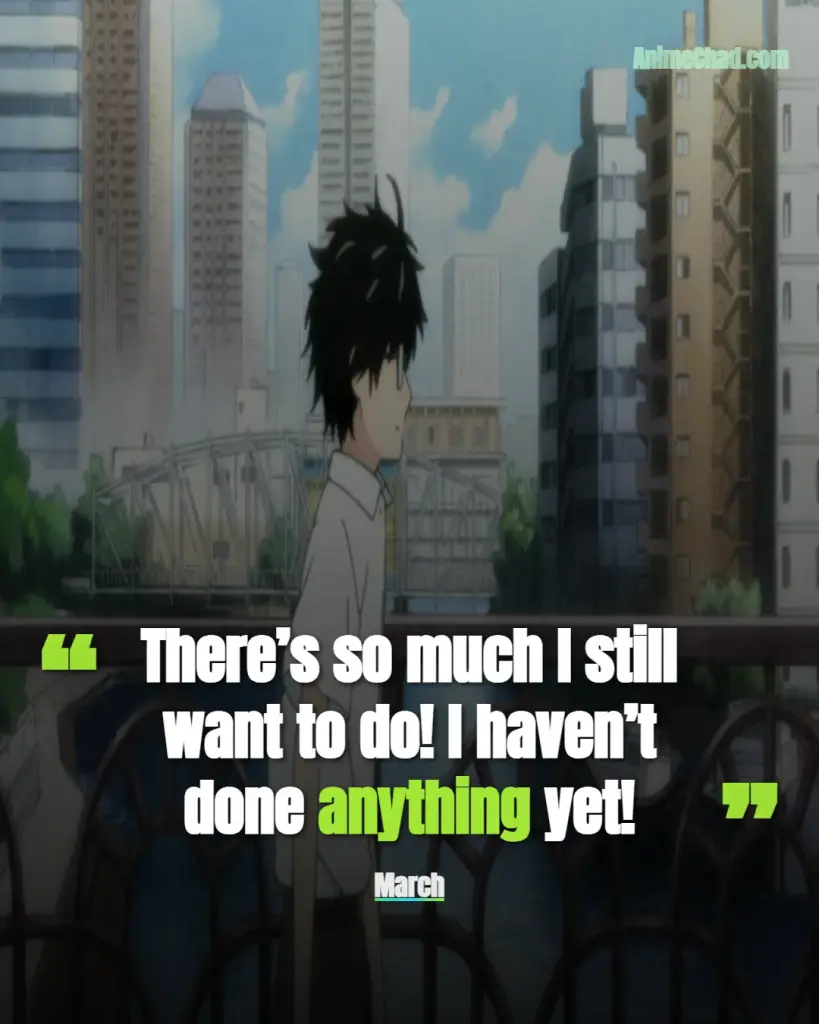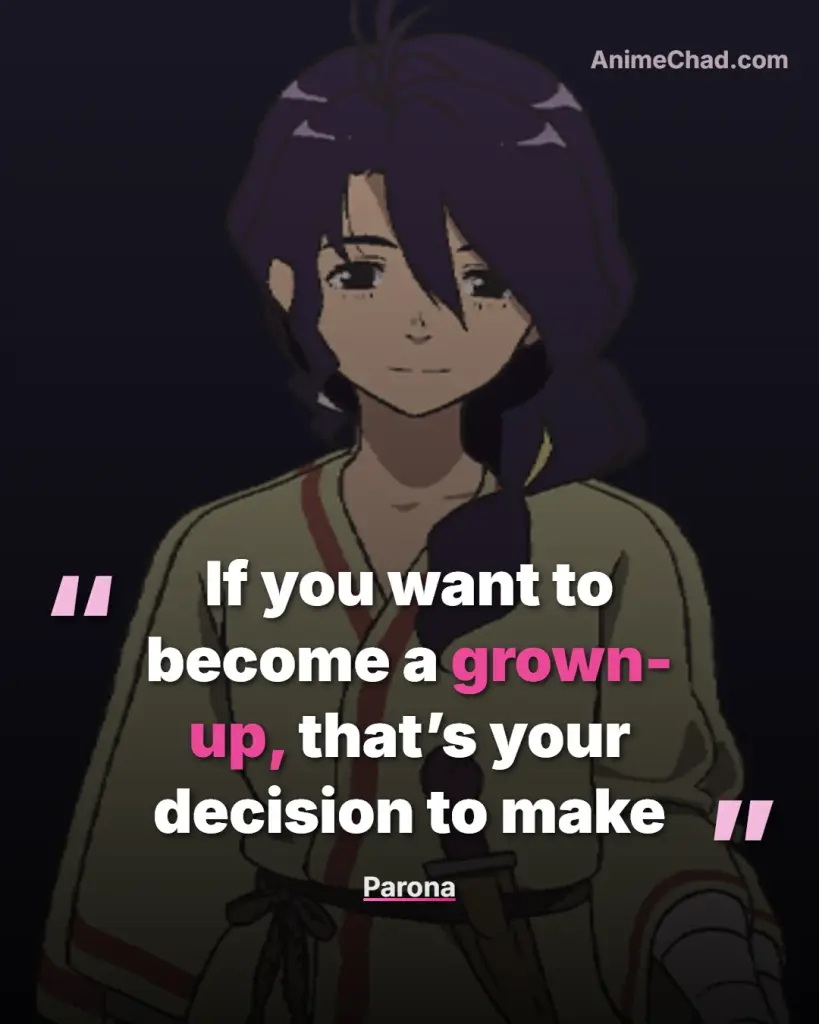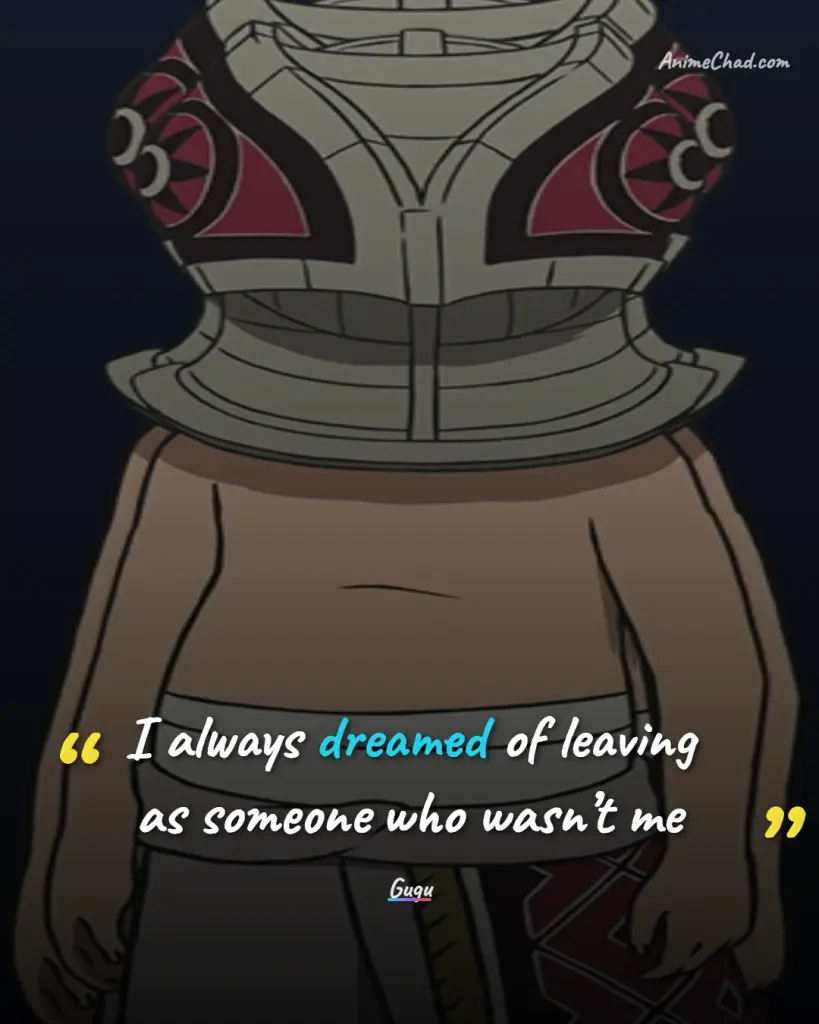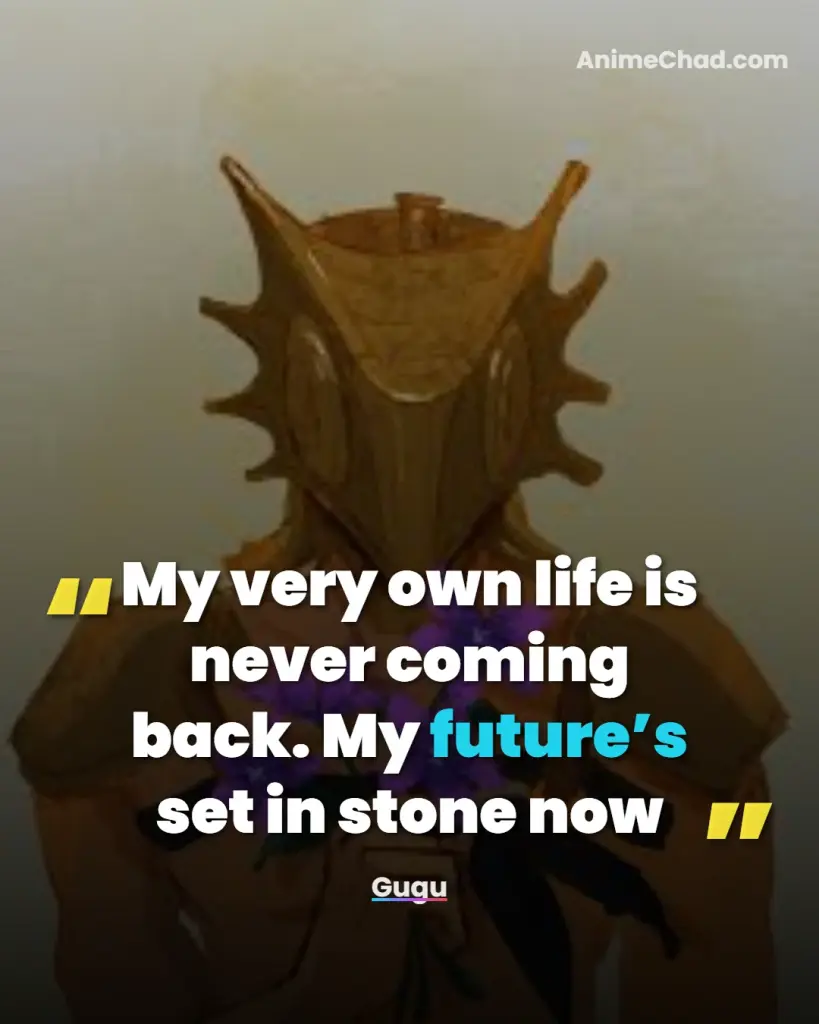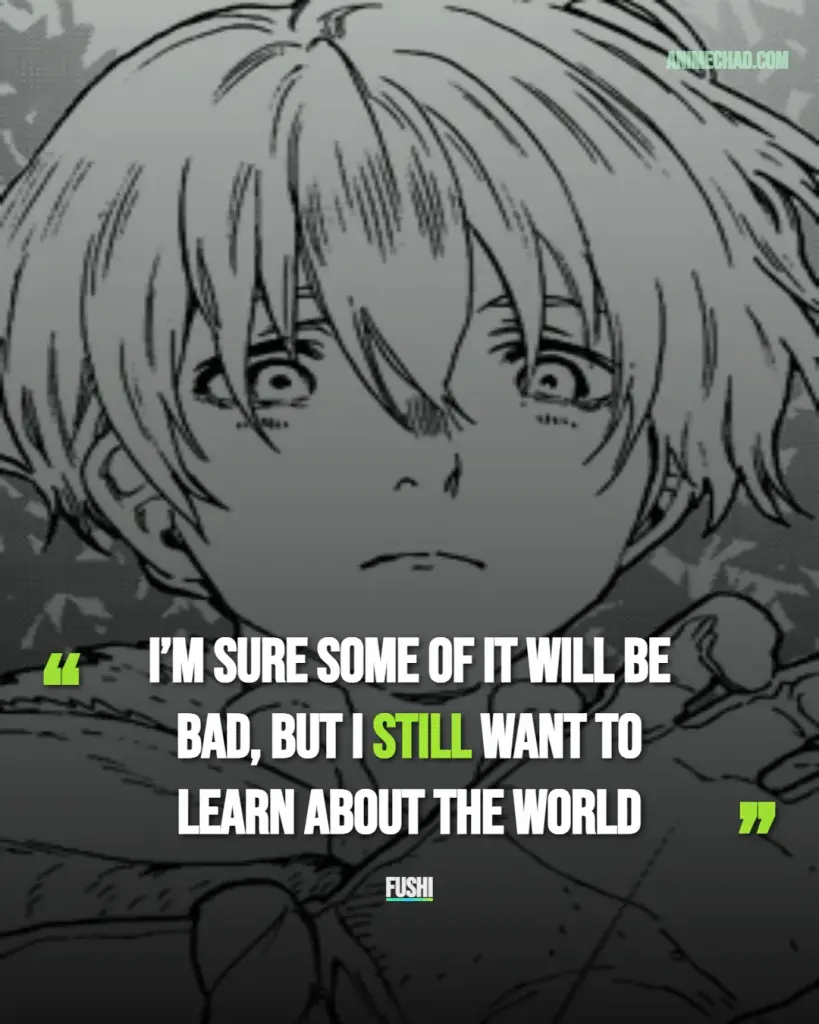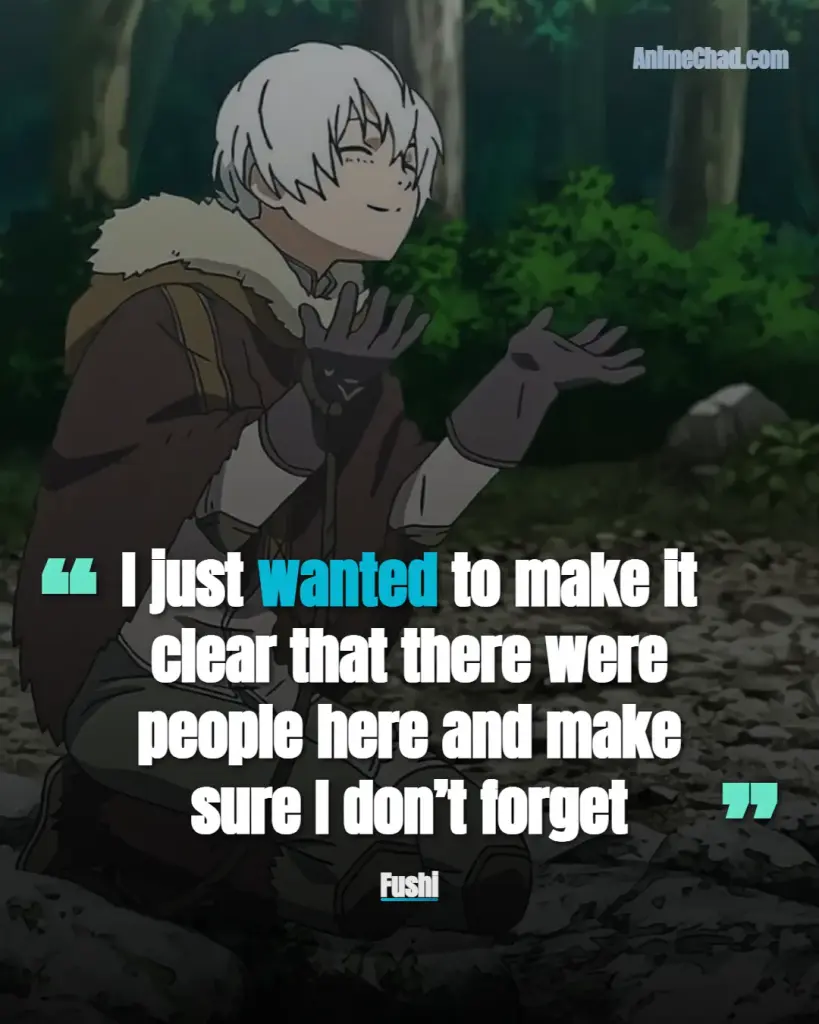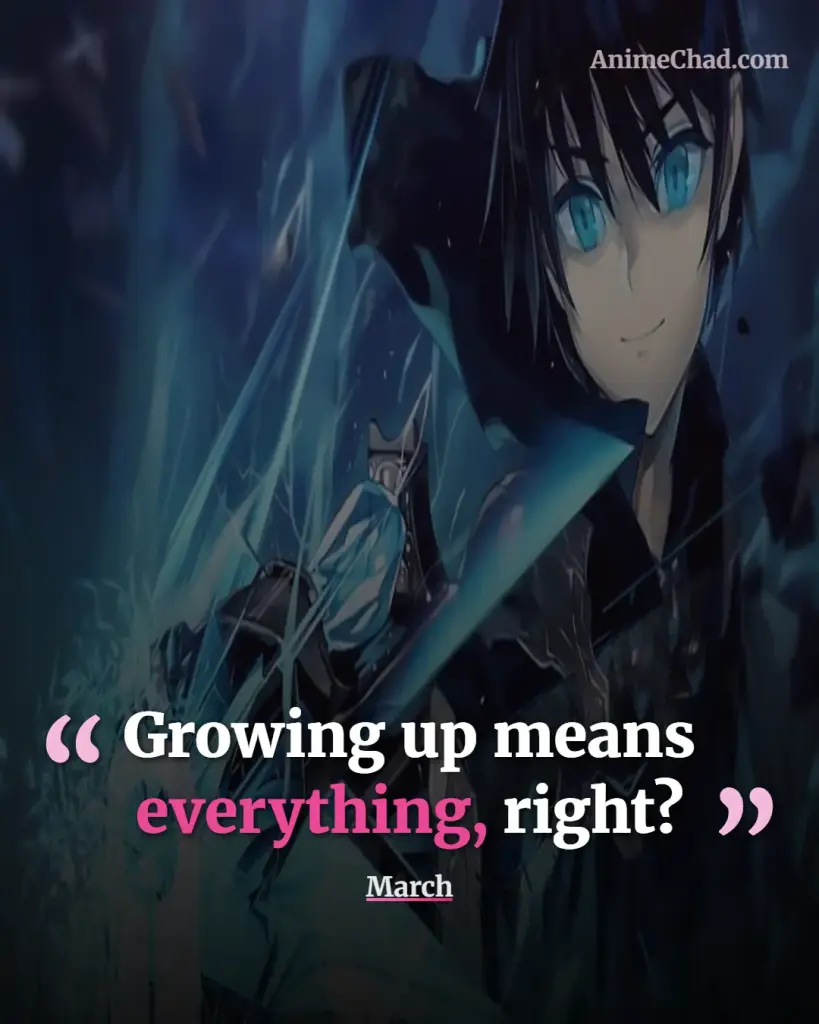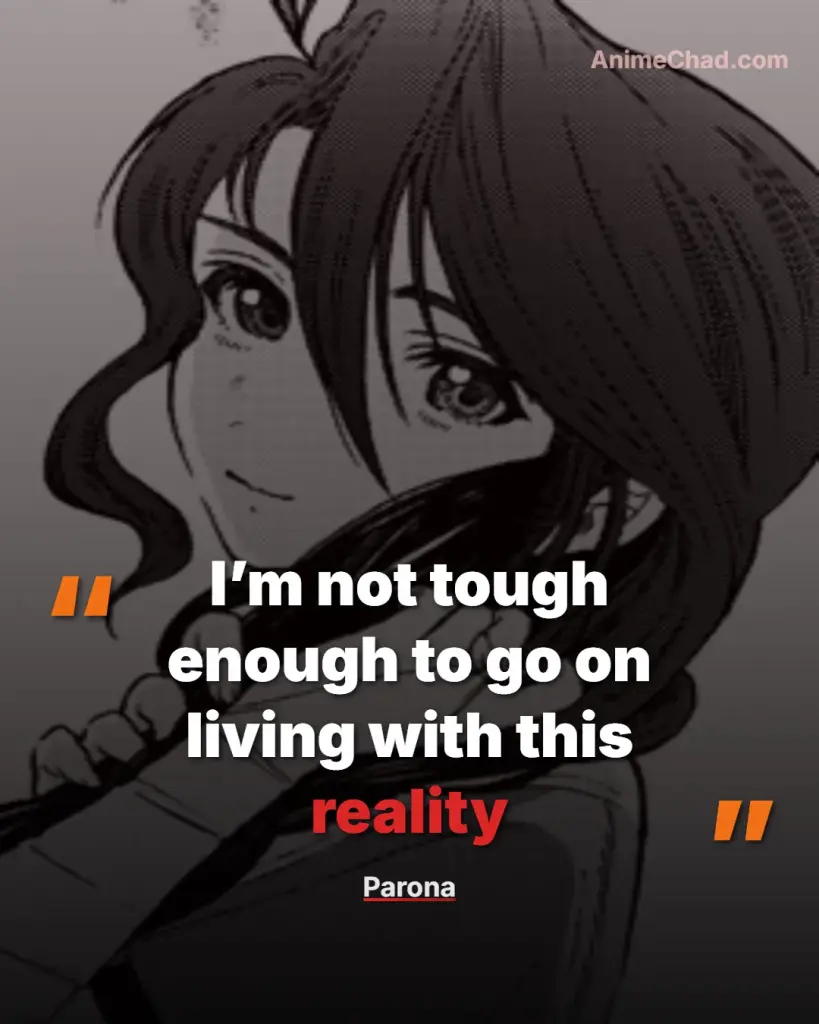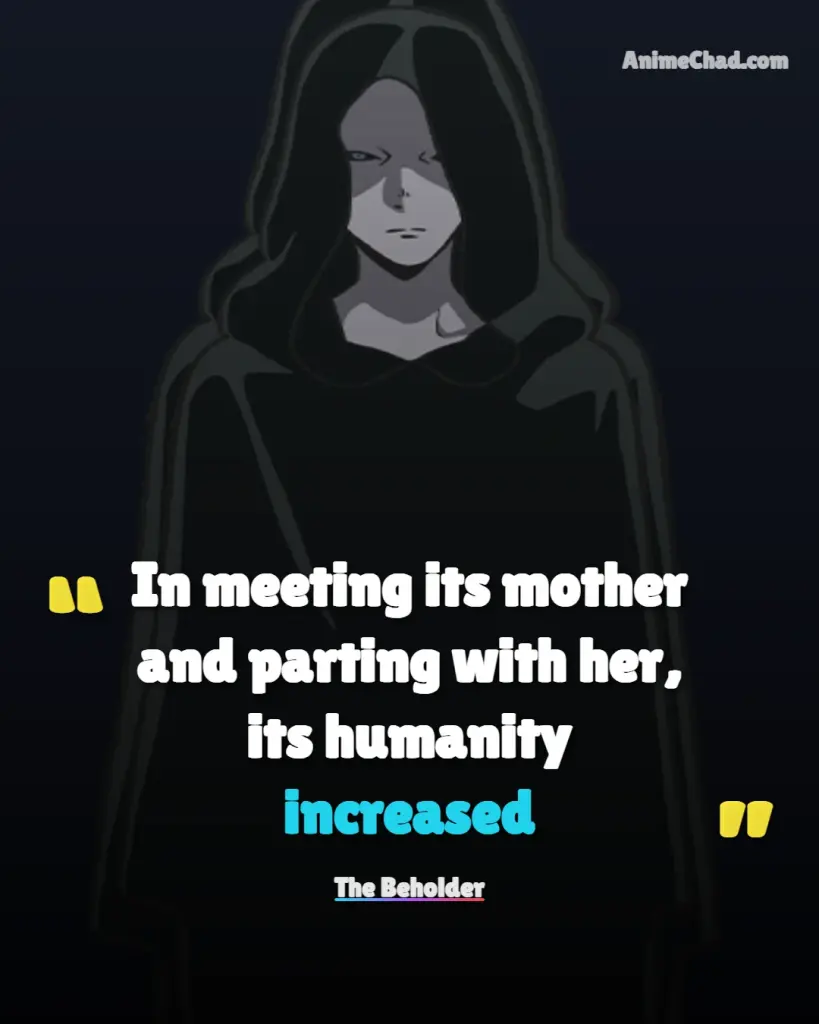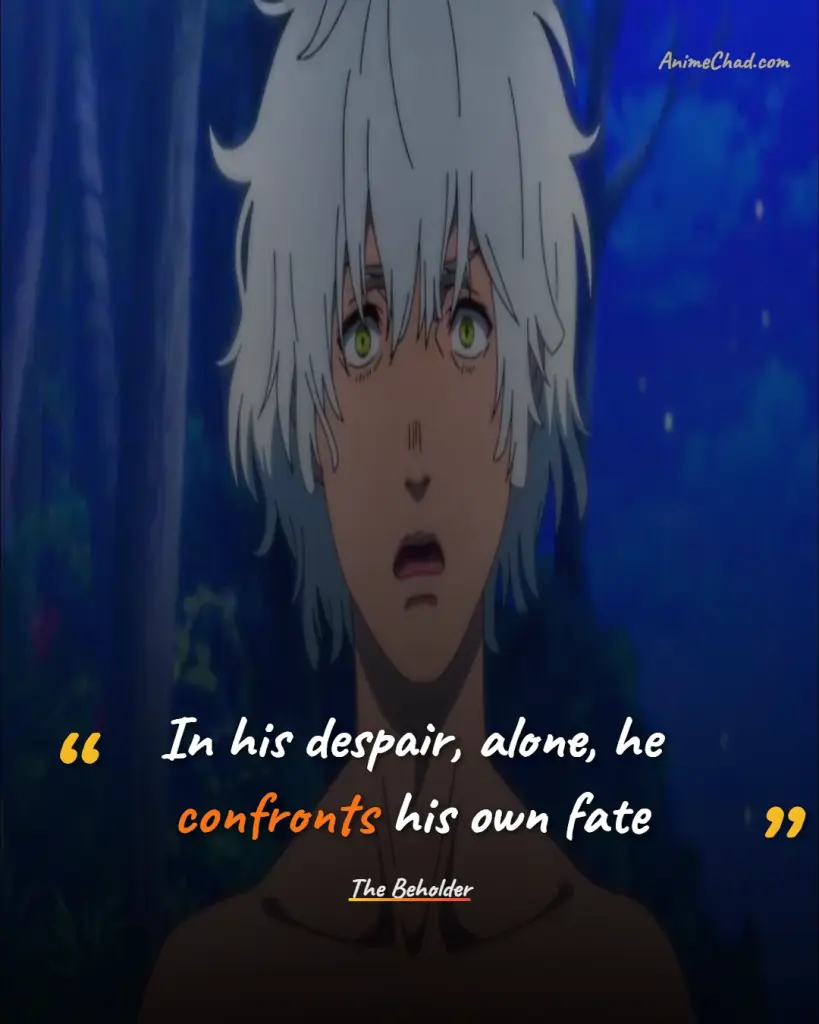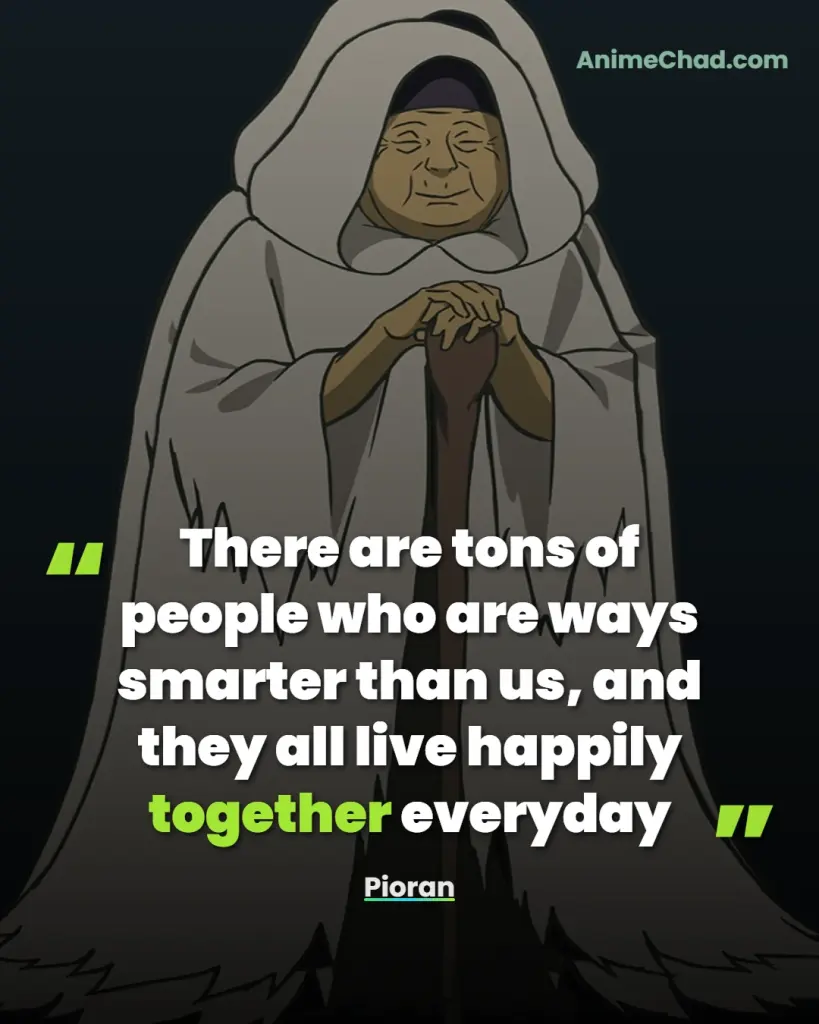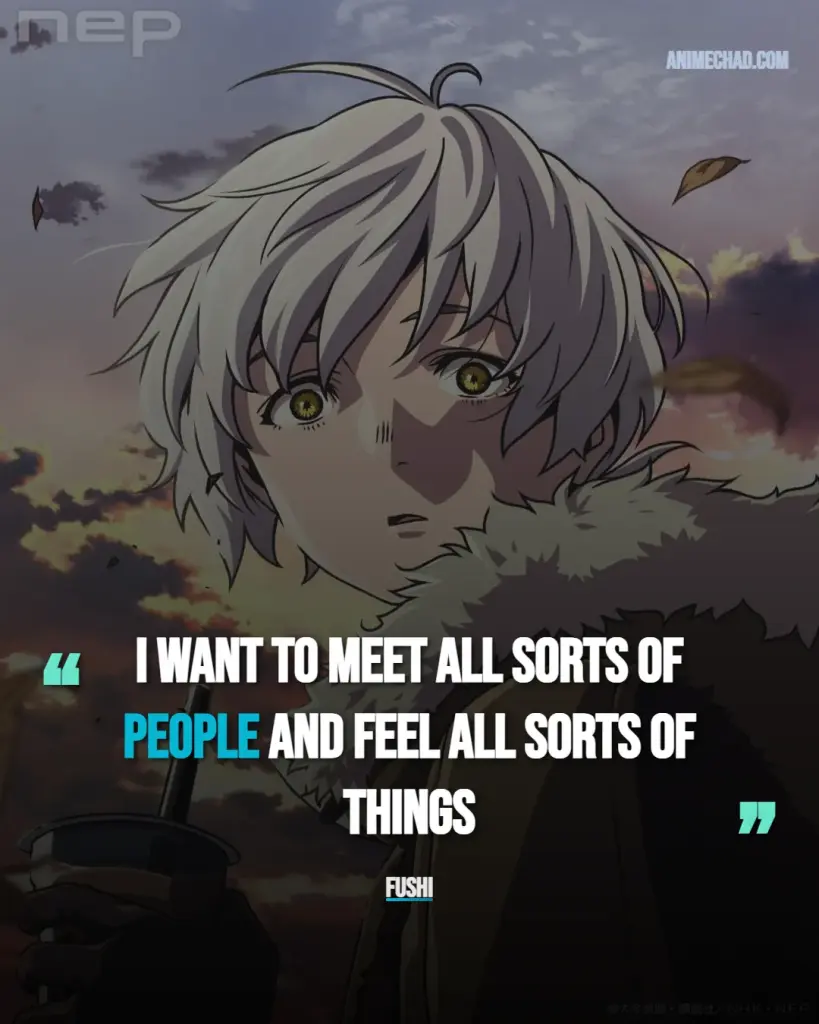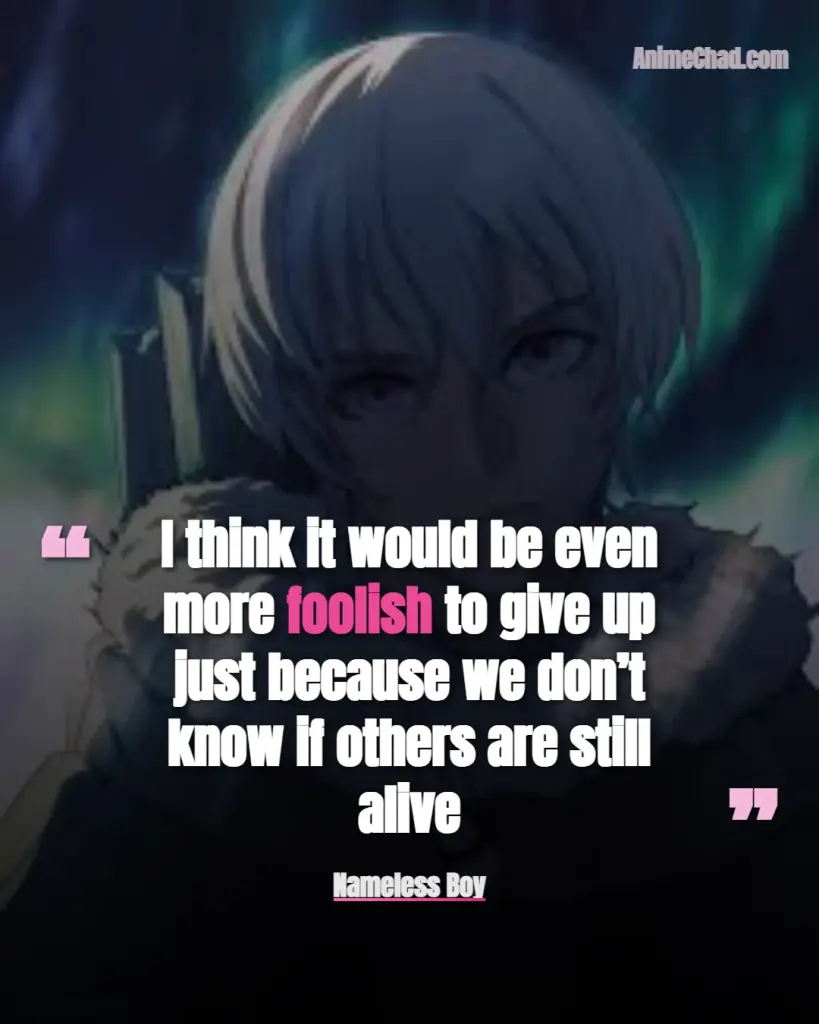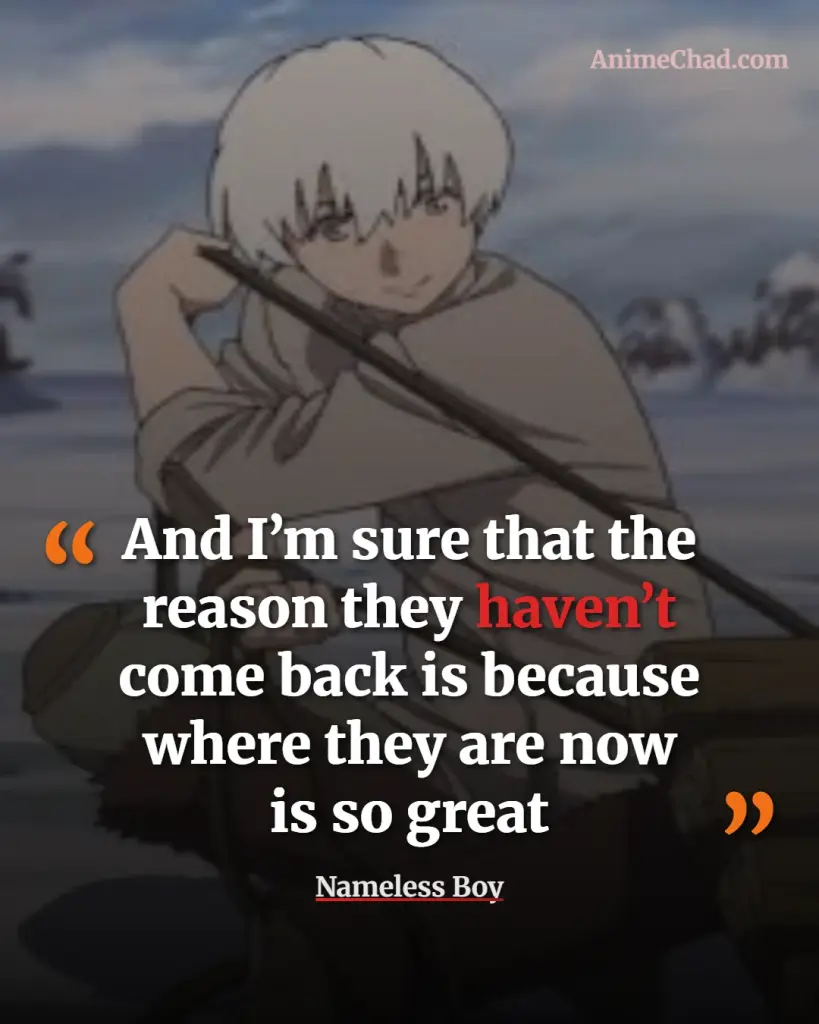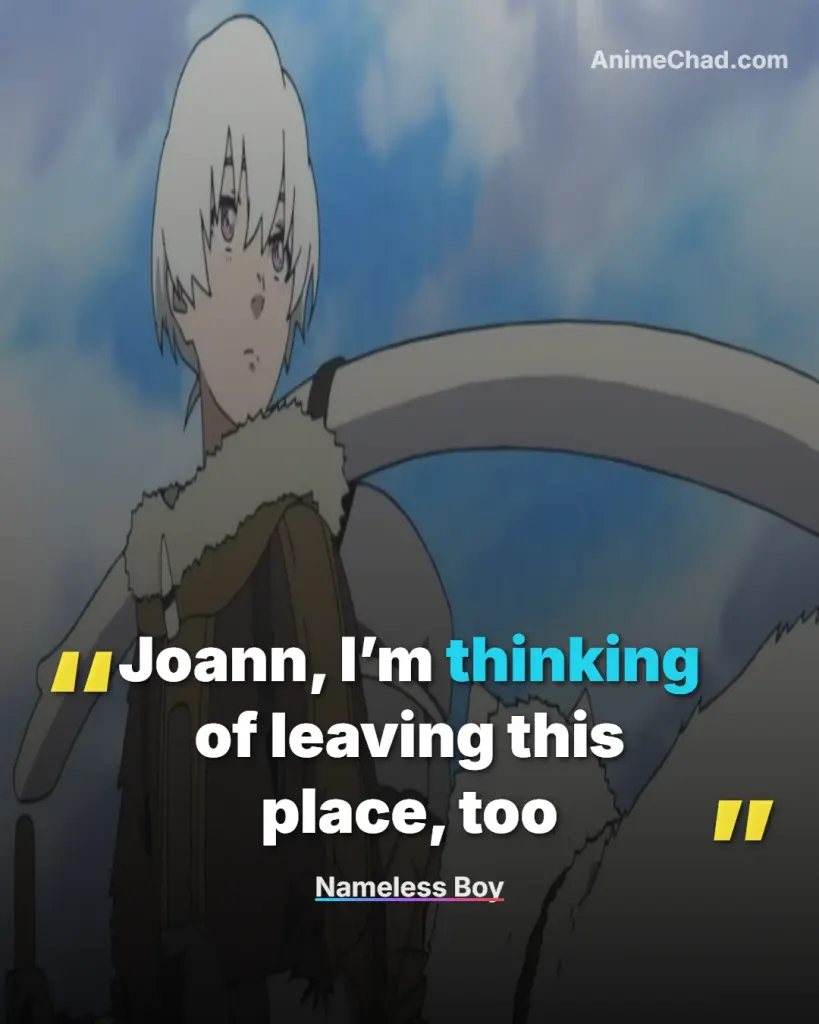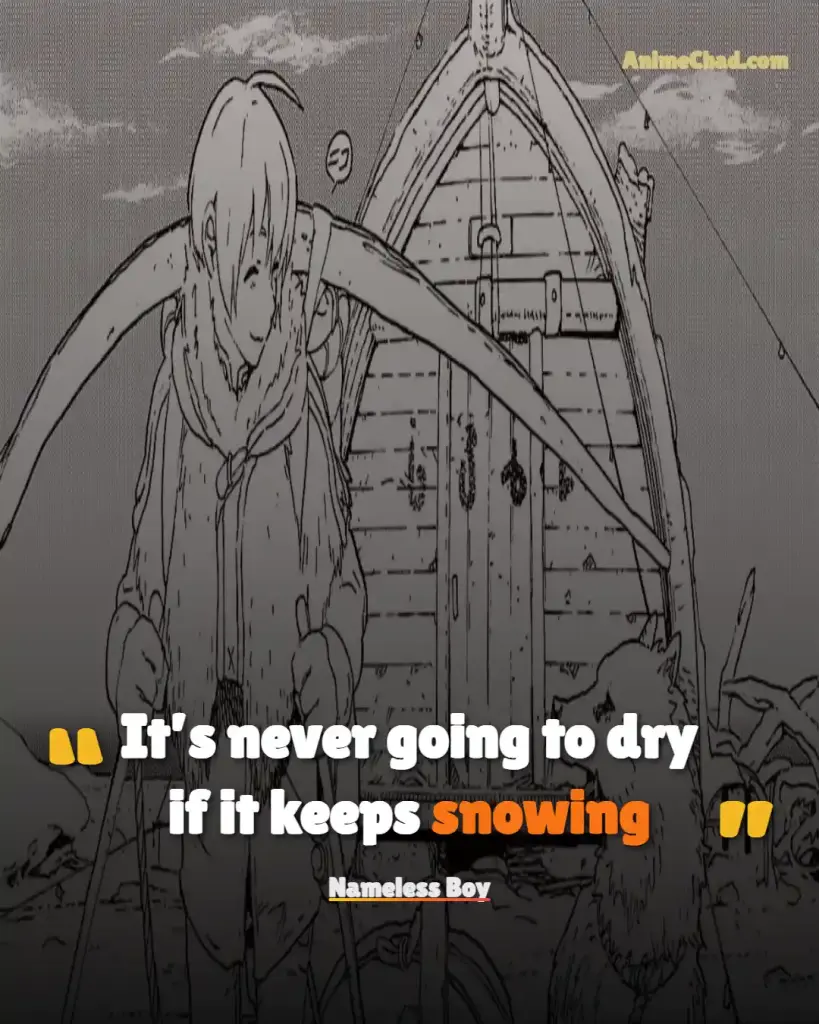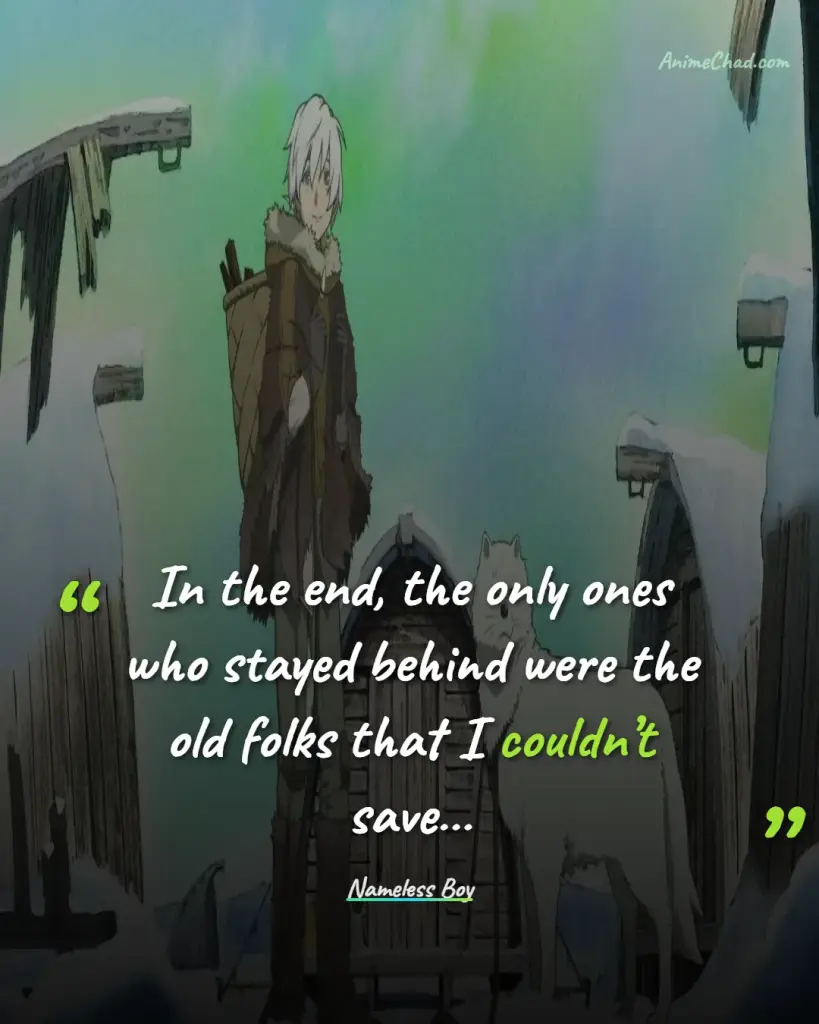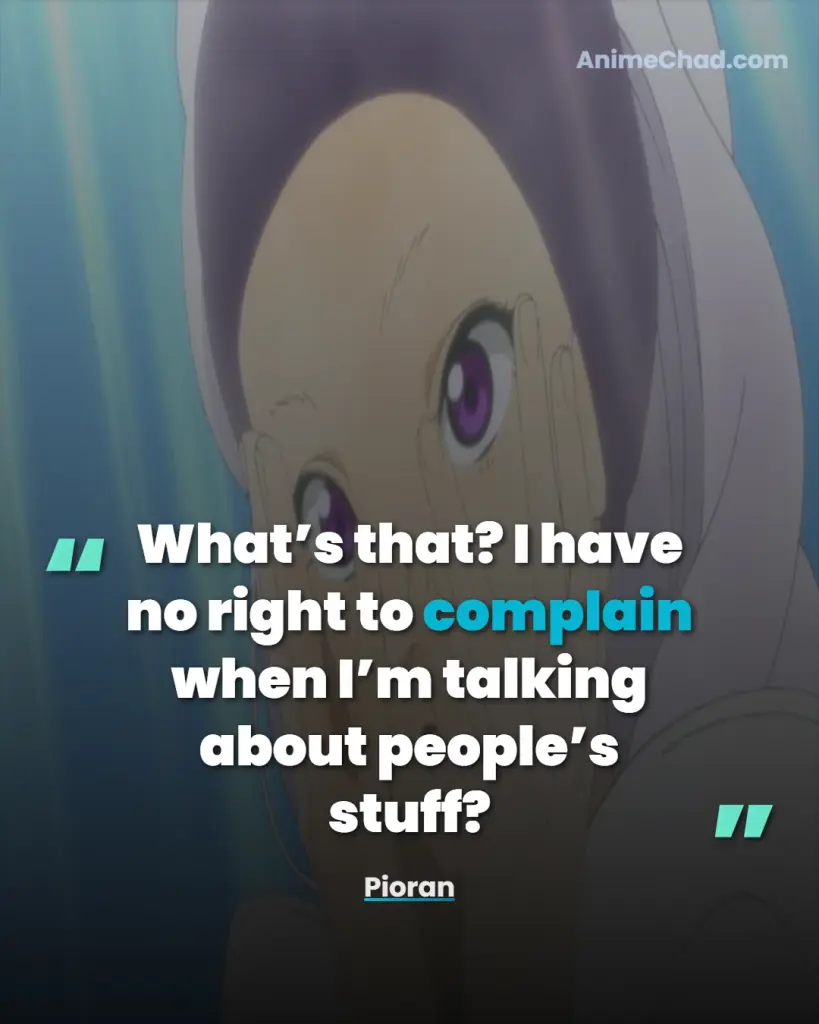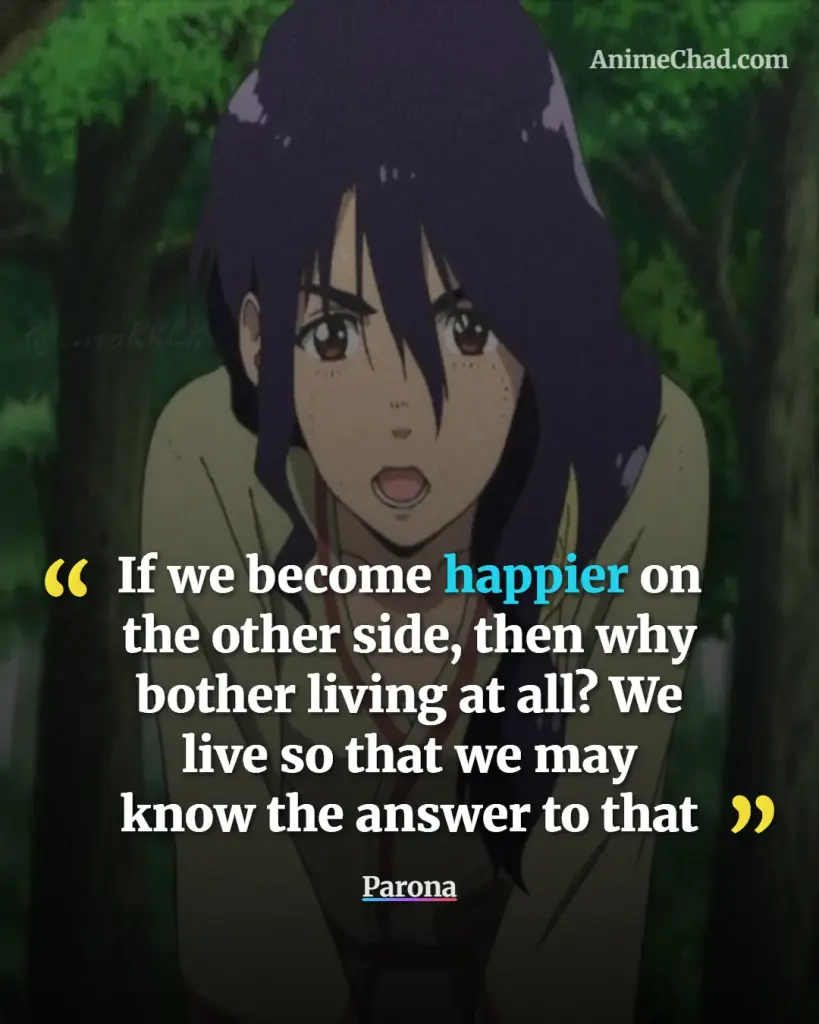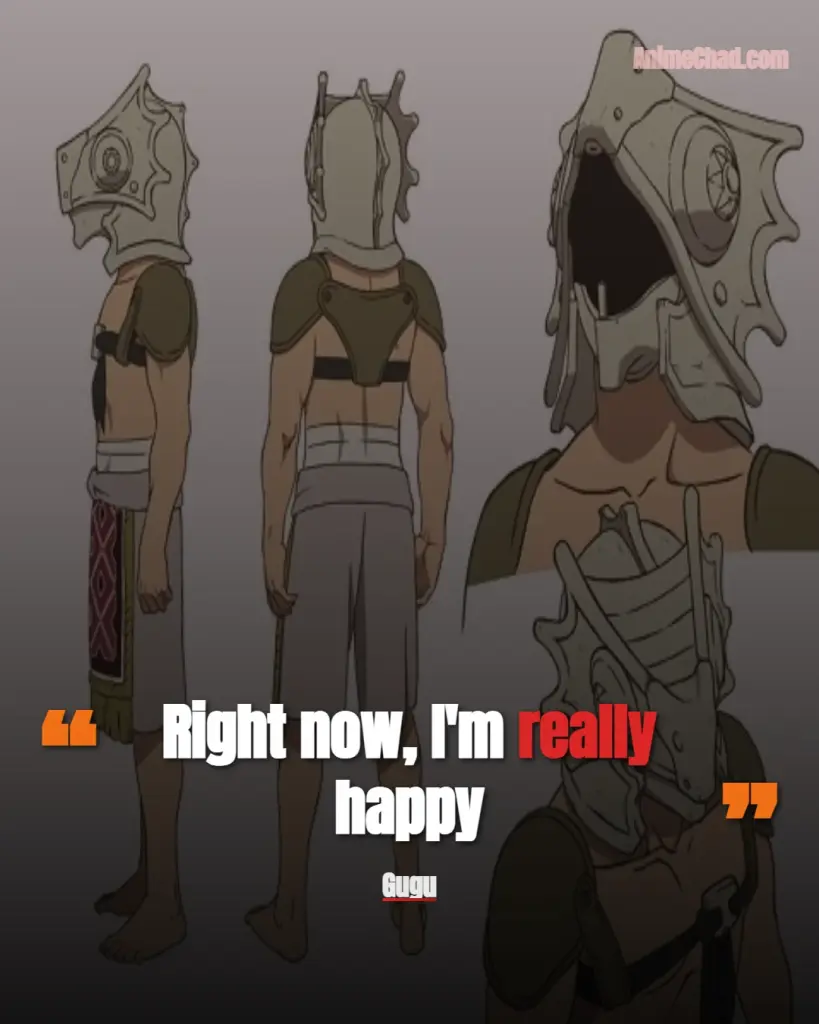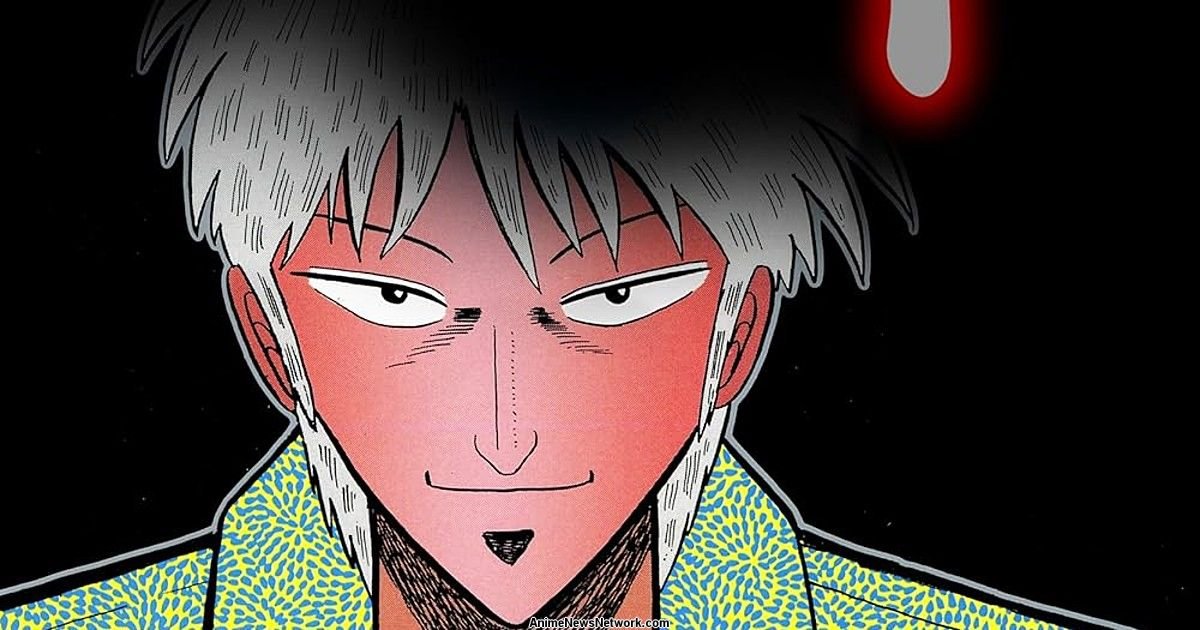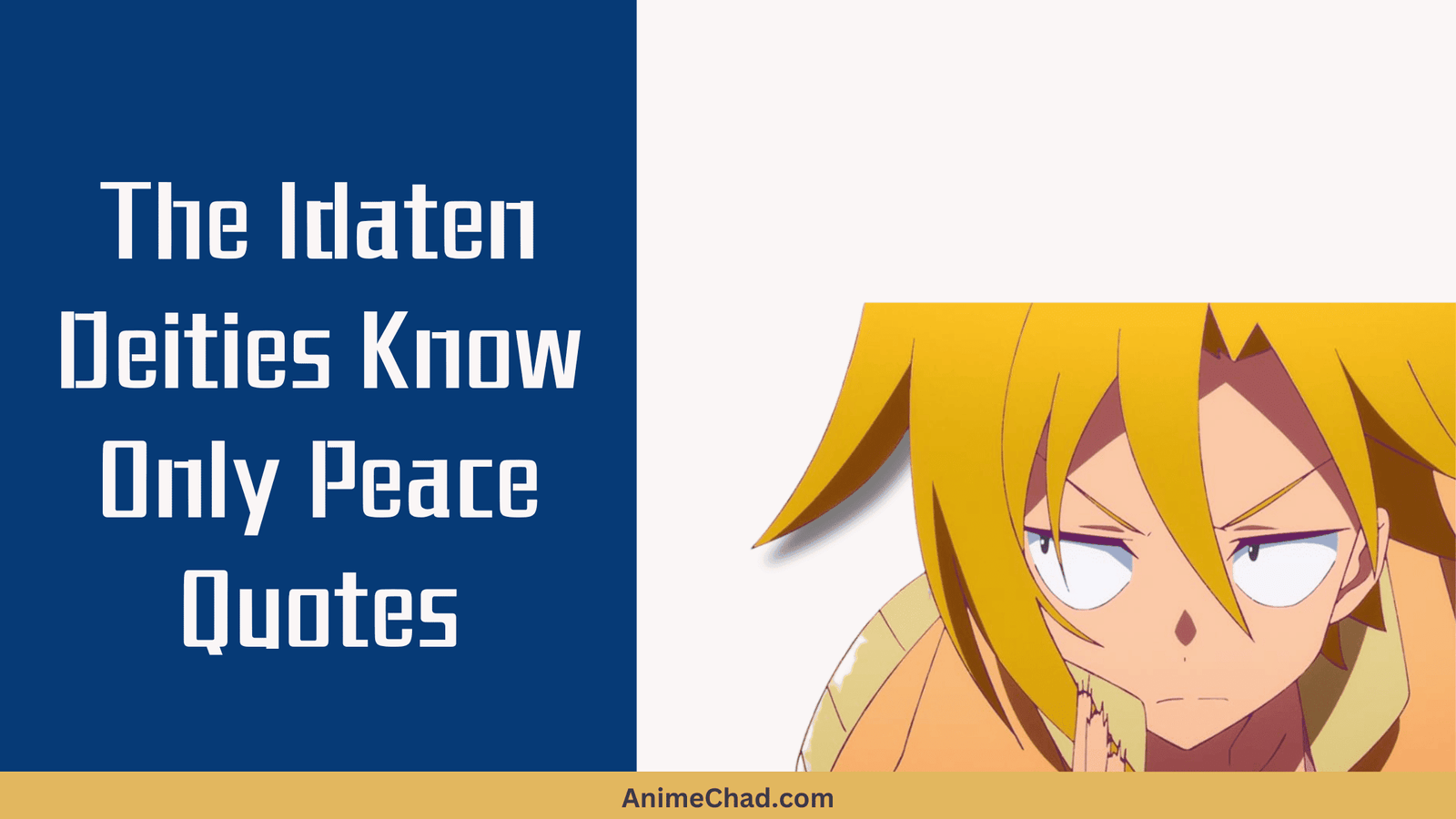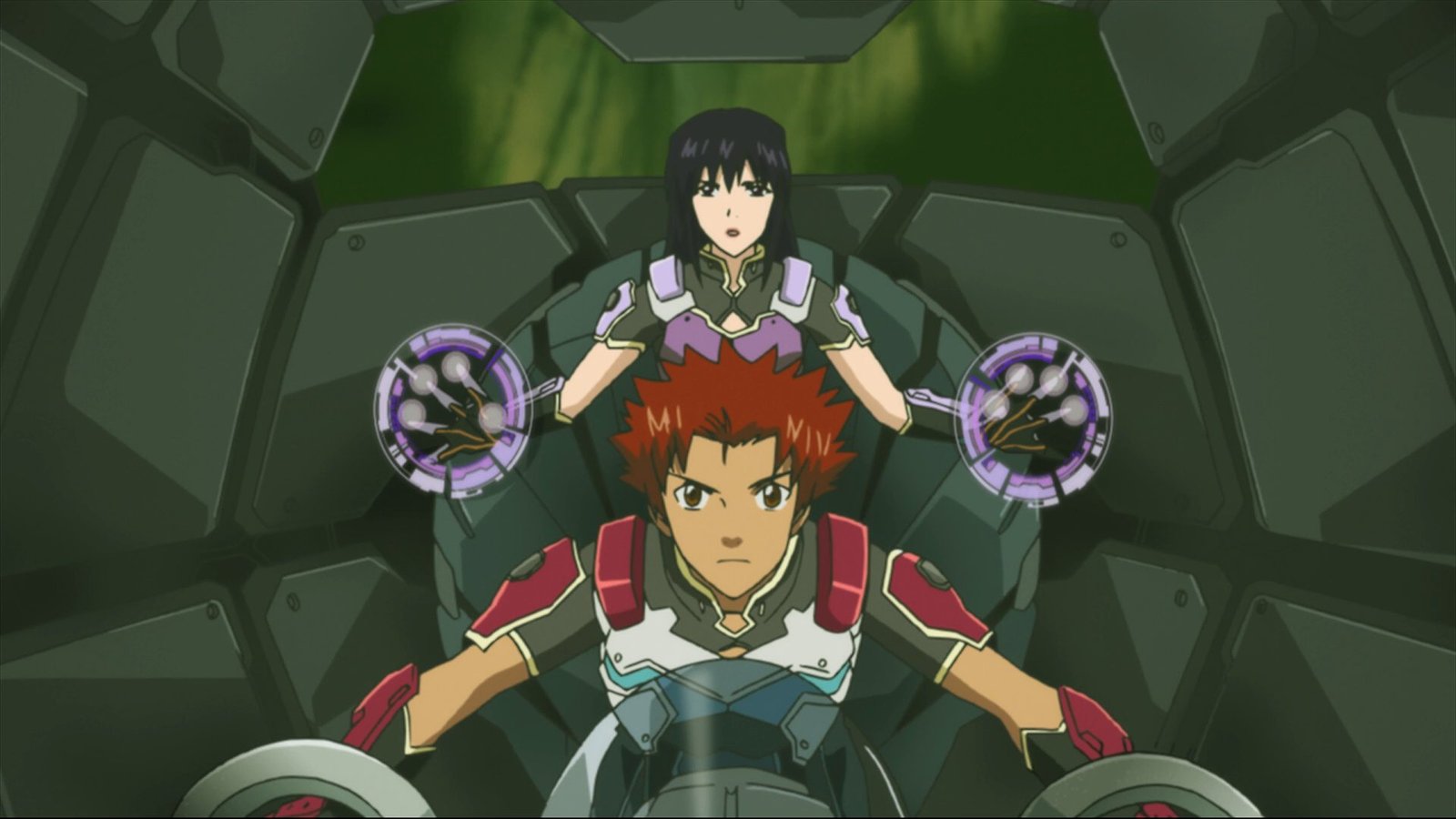To Your Eternity, also known as Fumetsu no Anata e, chronicles the journey of Fushi, an immortal being sent to Earth to observe and evolve through encounters with humanity. The series explores profound themes of loss, growth, identity, and the fleeting nature of life against the backdrop of eternity. This curated collection of 25 quotes highlights pivotal moments of emotional depth, character development, and thematic resonance, drawing from both anime episodes and manga chapters to inspire reflection on what it means to truly live.
I want you to do something for me. Remember me forever
Episode 1 (The Last One)
Fushi
Echoes the Nameless Boy’s dying wish, marking Fushi’s first grasp of memory and human connection, evoking profound loneliness and the theme of enduring legacy.
You gotta use your strength while you still have it
Episode 7 (The Boy Who Wants to Change)
Fushi
Spoken during Gugu’s arc, it urges seizing life’s moments, highlighting Fushi’s growing empathy and the series’ emphasis on mortality’s urgency.
There’s so much I still want to do! I haven’t done anything yet!
Episode 2 (A Rambunctious Girl)
March
March’s desperate plea before sacrifice captures youthful regret, driving her development toward bravery and tying into themes of unfulfilled potential.
Become a mommy in my place, Sissy!!
Episode 5 (Those Who Follow)
March
In her final moments, March entrusts her dreams to Parona, delivering heartbreaking innocence that underscores sacrifice and the cycle of life.
If you want to become a grown-up, that’s your decision to make
Episode 3 (A Minor Evolution)
Parona
Encouraging March amid peril, it fosters independence, reflecting Parona’s protective growth and the theme of self-determination in adversity.
Your life isn’t something given to you. It’s for you to win for yourself!
Episode 5 (Those Who Follow)
Parona
Defiant words during a battle escape, they empower survival, showcasing Parona’s resilience and connecting to broader motifs of agency and freedom.
I always dreamed of leaving as someone who wasn’t me
Episode 7 (The Boy Who Wants to Change)
Gugu
Post-accident reflection reveals Gugu’s identity crisis, evoking deep vulnerability and highlighting his arc of self-acceptance through friendship.
My very own life is never coming back. My future’s set in stone now
Episode 7 (The Boy Who Wants to Change)
Gugu
Gugu’s despair after disfigurement carries heavy emotional weight, marking his turning point toward purpose and exploring themes of irreversible change.
I’m sure some of it will be bad, but I still want to learn about the world
Episode 6 (Our Goals)
Fushi
During peaceful travels with Pioran, it shows Fushi’s curiosity evolving, balancing optimism with realism in the pursuit of eternal knowledge.
I just wanted to make it clear that there were people here and make sure I don’t forget
Episode 1 (The Last One)
Fushi
Recalling the Nameless Boy’s village, this quiet moment emphasizes remembrance, fostering Fushi’s emotional depth amid themes of forgotten histories.
Growing up means everything, right?
Episode 2 (A Rambunctious Girl)
March
March’s innocent query during captivity highlights her childlike wonder, leading to maturity and tying into the series’ exploration of life’s stages.
I’m not tough enough to go on living with this reality
Episode 5 (Those Who Follow)
Parona
Post-trauma confession reveals Parona’s inner turmoil, a pivotal low that propels her strength and resonates with themes of grief’s burden.
In meeting its mother and parting with her, its humanity increased
Chapter 2 (The Immature Girl)
The Beholder
Narrating Fushi’s wolf form loss, it underscores painful growth through separation, connecting to immortality’s cost and emotional evolution.
In his despair, alone, he confronts his own fate
Episode 1 (The Last One)
The Beholder
Describing the Nameless Boy’s end, this poignant narration evokes isolation’s weight, setting the tone for Fushi’s journey into human suffering.
There are tons of people who are ways smarter than us, and they all live happily together everyday
Episode 6 (Our Goals)
Pioran
Shared in a calm teaching moment, it humbles Fushi, promoting community and highlighting his development from isolation to relational understanding.
I want to meet all sorts of people and feel all sorts of things
Episode 6 (Our Goals)
Fushi
Expressing newfound desire post-losses, it marks Fushi’s shift toward active engagement, embodying themes of experiential eternity.
I think it would be even more foolish to give up just because we don’t know if others are still alive
Episode 1 (The Last One)
Nameless Boy
Spoken in quiet determination, it inspires perseverance, reflecting early themes of hope amid uncertainty and personal resolve.
And I’m sure that the reason they haven’t come back is because where they are now is so great
Episode 1 (The Last One)
Nameless Boy
Optimistic farewell words carry bittersweet faith, influencing Fushi’s worldview and tying into motifs of paradise beyond mortality.
Joann, I’m thinking of leaving this place, too
Episode 1 (The Last One)
Nameless Boy
Addressing his wolf, this signals bold change, evoking adventure’s pull and foreshadowing Fushi’s wandering path of discovery.
It’s never going to dry if it keeps snowing
Episode 1 (The Last One)
Nameless Boy
Simple observation amid harsh winters symbolizes futile hope, deeply impacting Fushi’s first lessons in impermanence and loss.
In the end, the only ones who stayed behind were the old folks that I couldn’t save…
Episode 1 (The Last One)
Nameless Boy
Regretful reflection on his village’s fate weighs heavily, sparking Fushi’s empathy and exploring themes of survivor’s guilt.
What’s that? I have no right to complain when I’m talking about people’s stuff?
Episode 6 (Our Goals)
Pioran
Playful rebuke during travels teaches Fushi respect, fostering his social growth in peaceful interactions and human nuances.
If we become happier on the other side, then why bother living at all? We live so that we may know the answer to that
Chapter 3 (A Small Evolution)
Parona
Philosophical exchange during escape balances doubt with purpose, highlighting life’s value and connecting to eternal questioning.
You must be the one to choose how you live!
Episode 5 (Those Who Follow)
Fushi
Echoing Parona in battle, it signifies Fushi’s emerging autonomy, a developmental milestone amid themes of free will.
Right now, I’m really happy
Episode 12 (Awakening)
Gugu
Peaceful declaration before tragedy evokes fleeting joy, underscoring Gugu’s arc of contentment and life’s fragile beauty.

